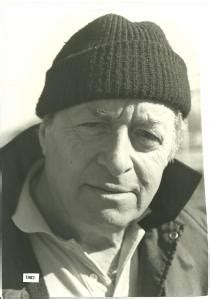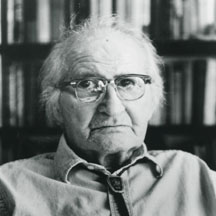A Quote by Charles Bukowski
When a writer is swayed with his fame and his fortune, you can float him down the river with the turds.
Related Quotes
Unless a writer lives with a periodic delusion of his greatness, he will not continue writing. He must believe, against all reason and evidence, that the public will experience a catastrophic loss if he does not complete his novel. The public is just clamoring to give him his fame. From the book Dare to be a Great Writer: 329 Keys to Powerful Fiction by
Strange is the vigour in a brave man's soul. The strength of his spirit and his irresistible power, the greatness of his heart and the height of his condition, his mighty confidence and contempt of danger, his true security and repose in himself, his liberty to dare and do what he pleaseth, his alacrity in the midst of fears, his invincible temper, are advantages which make him master of fortune.
He had thrown himself away, he had lost interest in everything, and life, falling in with his feelings, had demanded nothing of him. He had lived as an outsider, an idler and onlooker, well liked in his young manhood, alone in his illness and advancing years. Seized with weariness, he sat down on the wall, and the river murmured darkly in his thoughts.
If you saw Atlas, the giant who holds the world on his shoulders, if you saw that he stood, blood running down his chest, his knees buckling, his arms trembling but still trying to hold the world aloft with the last of his strength, and the greater his effort the heavier the world bore down upon his shoulders - What would you tell him?" I…don't know. What…could he do? What would you tell him?" To shrug.
As a writer, politician, scientist, and businessman, [Ben] Franklin had few equals among the educated of his day-though he left school at ten. (...)Boys like Andrew Carnegie who begged his mother not to send him to school and was well on his way to immortality and fortune at the age of thirteen, would be referred today for psychological counseling; Thomas Edison would find himself in Special Ed until his peculiar genius had been sufficiently tamed.
What a man does, that he has. What has he to do with hope or fear? In himself is his might. Let him regard no good as solid but that which is in his nature, and which must grow out of him as long as he exists. The goods of fortune may come and go like summer leaves; let him scatter them on every wind as the momentary signs of his infinite productiveness.
Detach the writer from the milieu where he has experienced his greatest sense of belonging, and you have created a discontinuity within his personality, a short circuit in his identity. The result is his originality, his creativity comes to an end. He becomes the one-book novelist or the one-trilogy writer.
The writer is a definite human phenomenon. He is almost a type - as pugilists are a type. He may be a bad writer - an insipid one or a clumsy one - but there is a bug in him that keeps spinning yarns; and that bulges his brow a bit, narrows his jaws, weakens his eyes and gives him girl children instead of boys. Nobody but a writer can write. People who hang around writers for years - as producers did - who are much smarter and have much better taste, never learn to write.
The analytical writer observes the reader as he is; accordingly, he makes his calculation, sets his machine to make the appropriate effect on him. The synthetic writer constructs and creates his own reader; he does not imagine him as resting and dead, but lively and advancing toward him. He makes that which he had invented gradually take shape before the reader's eyes, or he tempts him to do the inventing for himself. He does not want to make a particular effect on him, but rather enters into a solemn relationship of innermost symphilosophy or sympoetry.
A writer never forgets the first time he accepted a few coins or a word of praise in exchange for a story. He will never forget the sweet poison of vanity in his blood and the belief that, if he succeeds in not letting anyone discover his lack of talent, the dream of literature will provide him with a roof over his head, a hot meal at the end of the day, and what he covets the most: his name printed on a miserable piece of paper that surely will outlive him. A writer is condemned to remember that moment, because from then on he is doomed and his soul has a price.







































